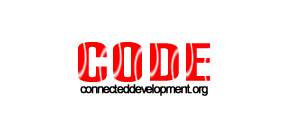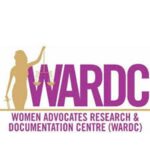The Connected Development (CODE) and BudgIT, two of the nation’s civil society organizations (CSOs) have urged the Federal Government to revamp the primary health care system for improved service delivery and well-being of Nigerians.
They made the call on Wednesday in Abuja at a meeting to build momentum for health care accountability organized by CODE and BudgIT with support from Conrad Hilton Foundation and Skoll Foundation.
- ‘Inadequate funding hampering Nigeria’s drug for COVID-19’
- Time to revamp primary health care services
The meeting was part of activities on implementing the second phase of the COVID-19 Transparency and Accountability Project (CTAP) and was aimed at tracking all funds and donations made in support of the Federal Government COVID-19 intervention.
Assistant Manager, BudgIT, Iyanuoluwa Bolarinwa, who spoke on ‘Strengthening Formidable Partnerships for Accountability’ said that the groups in the course of their work observed that most primary health care centers across the country needed a face lift.
“We saw the structures; they are in deplorable conditions and these are the first point of call to an average Nigerian where they go first to access care before they can even be referred to general hospitals.
“So, when you are going to your first call and it is nothing to write home about, it does not put you in an advantageous position, it sets you back further.
“So, we are recommending that the centers should be revamped and we also hope that the federal government can put more priorities on investments in research and development,” Bolarinwa said.
He called for more investment in the health sector and the need to implement the Abuja declaration by committing the federal government committing 15 percent of the budget to health care.
He also urged the government to tackle brain drain by empowering medical personnel to remain in the country to service citizens.
Speaking earlier, founder of Follow the Money and the Chief Executive Officer of CODE, Mallam Hamza Lawal, said that the COVID-19 pandemic showed that Nigeria’s fiscal accountability mechanism was weak.
According to him, the group began monitoring the N38bn raised in the Coalition Against COVID-19 (CACOVID), a private sector-led organisation established to assist the government in combating the Coronavirus disease.
“Sad to note is the fact that CACOVID, up to this moment have not told us how they spent our COVID-19 resources, we are yet to have a detailed breakdown of how much was mobilized, how much was disbursed, and released to various MDAs.
“However, this time around, we are more focused around how Nigeria and Africa can prepare for the next pandemic because COVID-19 literally brought us to our knees.
“So, we want to ensure that we are able to put in place a framework of fiscal accountability; two, we are able to also invest in primary health care because we know the centers play a critical role when we experience a pandemic,” Lawal said.
He said that the aim of the group’s work was to also educate citizens on COVID-19 while encouraging them to take the vaccines.
He said, “This was because a lot of citizens were not taking the jabs due to the distrust, misinformation and disinformation.
“I believe that this conversation with the media and civil society partners would help set a pace on how we can engage, and get the needed funding and investment for primary health care centers.
“It will set a pace on how Nigeria can lead other African countries to prepare for another pandemic because another pandemic may just be around the corner.’’
Also, Community Engagement Director, CODE, Mr. Busayo Morakinyo, in his presentation on the overview of Federal Government’s intervention performance on Primary Health Centers (PHC) assessed the level of government’s intervention on the centers.
Morakinyo, however said that findings by the Follow the Money initiative in communities indicated that most of the centers fell below the minimum Primary Health Care standard.
He said, “Findings revealed that they lack electricity, 30 percent of the PHC have no access to clean water.
“Interviews with some of the community indigenes shows that they rely on rain water and well water stored in the tanks.
“Fifty six out of 90 PHCs assessed, have the recommended pharmaceutical fridge to host vaccines while some of the PHCs received less than 10 vials of COVID-19 vaccines.”

 Join Daily Trust WhatsApp Community For Quick Access To News and Happenings Around You.
Join Daily Trust WhatsApp Community For Quick Access To News and Happenings Around You.


